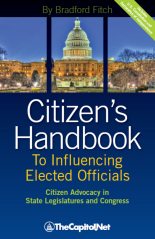Recent CRS Reports – March 2021
The Economic Effects of Financing a Large and Permanent Increase in Government Spending, Congressional Budget Office, CBO Working Paper 57201, March 2021 (42-page PDF) “Recommendation for New U.S. Circuit and District Court Judgeships by the Judicial Conference of the United States (117th Congress),” CRS Insight IN11639, March 26, 2021 (6-page PDF) “District of Columbia Voting … Read more




